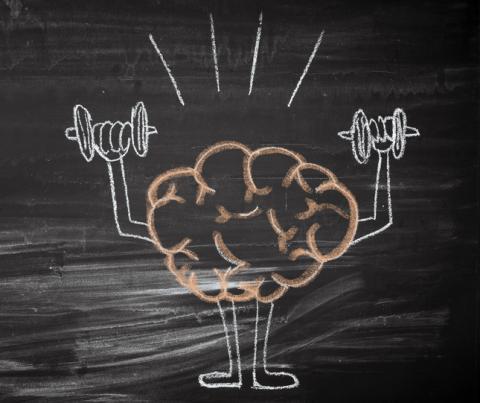Brain Health: What Really Works?
Many are worried enough to take steps to lower the risk—but, reports study author Dr. Donovan Maust, they may not be taking steps that would actually protect their brains. This is mostly likely because only 5% of the people studied had ever talked to their doctor about their risk and what they could do to reduce it.
Dr. Maust reports that many people are wasting their money on “brain game” products that claim to stave off dementia. He also points out that there is no reliable evidence that such popular supplements as fish oil or gingko biloba really work, yet one-third of the people polled were taking them.
If we can’t take a pill or play a game to protect our brains, what can we do? Here are things neurologists today tell us are really beneficial:
- Manage chronic health conditions such as heart disease, diabetes, hypertension and obesity. Brain health is intricately connected with overall body health.
- Improve your diet. Though supplements aren’t very effective, the substances that naturally occur in healthy foods certainly are. Talk to your doctor about a food plan that meets your nutritional needs.
- Get more exercise. Physical activity is one of the best ways to promote overall health, including cognitive wellness. Talk to your doctor about a fitness plan that’s right for you.
- Get enough good-quality sleep. While you’re snoozing, your brain is anything but slacking! While we sleep, our brains clean out harmful toxins, and stockpile memories from the day before.
- Manage your stress. Over time, stress damages almost every organ of the body—and that includes the brain.
- If you smoke, quit! The harmful substances in tobacco raise the risk of dementia. E-cigarettes, too, are bad for the brain.
- Spend more time with other people. Loneliness is very stressful—perhaps as much as smoking or obesity, report many experts.
- Stay mentally active. It doesn’t take trademarked “brain games” to give our minds a good workout. Learn something new every day. Challenge your mind with things you enjoy.
- Don’t drink too much. Overindulgence causes shrinking of parts of the brain that are associated with memory and thinking. It worsens many health conditions that harm the brain, as well.
The younger you are when make these lifestyle changes, the better, says Dr. Maust. But any time of life, they can help. “People in their 50s and 60s can take specific actions to improve their health now at much lower cost to themselves and society, plus saving the dollars they’ve been spending on supplements and brain games,” he reports.
